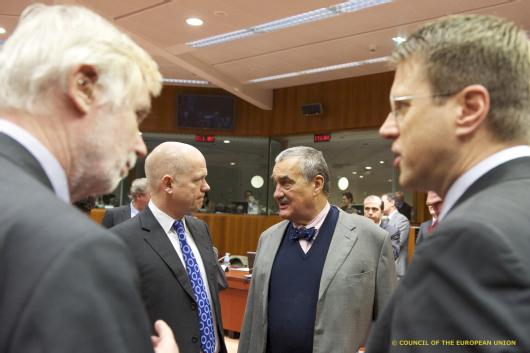
Statement by Minister of Foreign Affairs Karel Schwarzenberg on the process of EU enlargement in the Western Balkans
01.12.2011 / 23:23 | Aktualizováno: 31.01.2014 / 08:14
Statement by Minister of Foreign Affairs Karel Schwarzenberg on the process of EU enlargement in the Western Balkans before the December 5 meeting of the General Affairs Council and the December 9 meeting of the European Council.
The General Affairs Council and the European Council meetings held every December represent milestones in the EU enlargement process and the occasions when progress of the countries aspiring to become EU members is evaluated and relevant decisions made. This year, the debate on enlargement may be overshadowed by other serious issues. However, the EU enlargement has to remain an important policy and should not take a back seat. Achieving necessary progress and fulfilling of all set criteria continues to be the condition that candidate and potential candidate countries have to meet in order to move forward. On the other hand, if the credibility of the whole process is to be preserved, it is necessary that the EU takes fully into consideration the achieved progress.
The signing of the Accession Treaty with Croatia, which is going to take place on the margins of the European Council meeting on December 9, will mark a successful conclusion of Croatia’s efforts and be a momentous symbol for the rest of the Western Balkan countries.
I value Montenegro’s active approach in fulfilling political criteria set by the EU and I fully identify with the view of the European Commission that Montenegro has sufficiently met all seven benchmarks set forth in the 2010 opinion as the condition for launching accession negotiations. It is my opinion that the decision to set a date for starting accession talks between the EU and Montenegro should be made at the upcoming meeting of the European Council on December 9. I am convinced that if Montenegro maintains the current pace of reforms it can, following Croatia’s success, provide further positive impulse for the European integration of other Western Balkan countries.
Serbia is an important country in the region and I am pleased to note that in the past year it has made significant progress in reforms, cooperation with the International Criminal Tribunal for the former Yugoslavia, and process of regional reconciliation. The conditions for granting the status of candidate country have been met and this step has been recommended by the European Commission in its opinion. Therefore, I would consider it appropriate for the European Council to grant Serbia candidate status.
I follow very closely the Serbia-Kosovo dialogue including the opening of new topics and implementation of the agreements reached so far. I believe that the progress in the dialogue will contribute to making life easier for the inhabitants of Kosovo in particular and that it will, in the long-term, bring about the normalization of relations between Serbia and Kosovo.




